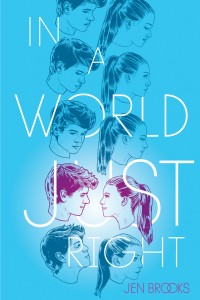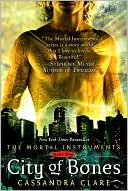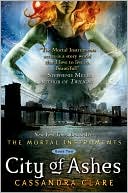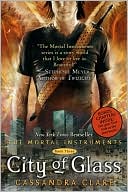writing
“New Adult”
I first came across the term “New Adult” last year while writing a paper for graduate school. My understanding is that it was coined in November of 2009 when St. Martin’s press held a contest looking for stories that would appeal to an older YA audiencethose in their late teens and early twenties who are “new” to adulthood. It is a crossover audience of people too old to want to read 12-to 18-year-old-YA but looking for books that are like it with older characters.
Apparently the “New Adult” wave hasn’t caught on. If you Google “college age protagonists” you will find a selection of blog entries and other articles on the subject. Two I found interesting are this and this. The first contains a nice summary of the issue then a number of interesting comments. The second I find interesting because the speaker is an articulate 16-year-old. Look here for rules and entries in the actual contest. I find myself intrigued by the whole New Adult concept and the debate over its worthiness and lack of feasibility.
Mostly I see more and more of my friends, who are adults, reading YA lit. As a former high school teacher, I also know that actual young adults reach a certain point where they cross over to reading adult lit. So does the cycle of a reader’s life go . . . kid lit–>middle grade lit –>YA lit–> adult lit–>regress to YA lit? I don’t think so, but it brings up the question of what exactly it means for a book to be YA lit these days. If it isn’t the target audience (because adults are reading it, too, and pay the same dollars for it), then what is it? The coming-of-age subject matter? (As if no books labeled “adult” are coming-of-age stories.) Is it the complexity of the story? (As if adult books are uniformly more complex than YA ones. There is a range of complexity in either category.)
What is it? Huh? Huh?
I can’t think of a YA book I’ve read that didn’t feature a young protagonist, but I feel this criterion alone is insufficient.
Anyway, I’m not alone in thinking it would be nice to see some 18- to 26-year-olds featured in novels. If the story is good, would it really not sell because of the protagonist’s age? Or is the one thing that really matters the shelf it gets put on in the big bookstore?
Thoughts?
(Update on 12/19/12: I came across this Publisher’s Weekly article today. If you are researching the topic of “New Adult” literature, you might want to check it out:http://www.publishersweekly.com/pw/by-topic/industry-news/publishing-and-marketing/article/55164-new-adult-needless-marketing-speak-or-valued-subgenre.html)
Speak up:
17 comments| TAGS:
new adult, YAWriting what you read?
Now that year’s end has me reviewing my list of books read in 2011, I’m counting all my excuses for not reading more than I wanted. Left to my own devices, I’m confident I would join the 100+ club for the year, but alas . . .
Graduate school is one excuse, since I spent the first six months finishing an MFA. (Of course part of that degree actually required me to read books, so that excuse is a little thin.) There is my young son, who goes to bed late at night, so I don’t often get to read in bed before sleep. My biggest excuse, though, is that I spent more time writing than in any previous year.
Writing and reading go hand in hand for a lot of writers, but for me this isn’t the case. My writing is affected by the style and content of what I read, so if I’m looking for inspiration, for encouragement, for a jump start, nothing is better than reading a good book. (I’ve noted in a previous entry that Graceling and Thirteen Reasons Why recently turned out to be good choices for me.) Once I’m on a roll writing, though, I find that reading interferes with my writing. It inhibits my voice and ideas because my head becomes filled with somebody else’s voice and ideas.
This is not to say I don’t read at all when I write. It means that certain parts of the writing process make me hesitant to read. Brainstorming, outlining, and revising are great times for me to be reading good fiction. When I’m actually producing pages, though, it’s better for me to abstain from reading or to read something non-fiction. Today I started a non-fiction book on medieval England.
How are reading and writing related for you? Do you find it hard to read while working on your own piece? Do you find certain books help you along?
Speak up:
comment| TAGS:
excuses, Graceling, Thirteen Reasons Why, writing processA page a day
You know how sometimes you have to learn certain lessons for yourself? No matter how many times the advice is given to you previously?
I’m spending less time on this blog the last few weeks because I’ve been using all my word count in my work in progress. It’s kinda like NaNoWriMo, only it takes me longer than a month. Since September 22nd, I’ve completed 50,000 words of a projected 90,000-word story, most of which has gotten done between last month and this. I truly hope to be finished with the first draft by the end of January.
My first novel took me something like six years to write. The second took another five. Both required help from graduate school structure, mentors, and critique partners.
While my second novel goes through the process of finding an agent for representation, I’ve started manuscript #3. But my writing process is totally different.
I used to have to “warm up,” so to speak, before I could write. I had to clear my email and check certain other sites and generally procrastinate before I felt ready to write. (I recall more than one game of spider solitaire being a part of this process.) Once I was warmed up, if I didn’t have at least two hours or more ahead of me, I got frustrated and blocked and couldn’t write. I used to think if I didn’t complete a major chunk (a chapter or two) in a writing session that it wasn’t even worth my time to sit down and write.
Not so anymore. I wake up early every weekday morning and most weekends with the goal of getting a page done, even if it is a page of total crap that needs to be rewritten the next day. For the first month or two, a page is all I accomplished, and it seemed like such a paltry thing, but it was enough. Lately I rarely leave the computer without at least 1,000 words complete, and usually much more.
I think by forcing myself to get out a page, I forced myself to plot. My difficulty writing had always been that I just didn’t know what should come next. When I forced myself to write a little something every day, I forced something to come next. And that lead to another next and another next and another next.
During my time at SHU I was told that if I wrote a page a day for 365 days, I’d have a novel. (I’m sure this advice should be attributed to someone specific, but I remember it as advice that was simply passed around.) A year sounded like such a short time compared to the five or six it took to do each of my first two manuscripts. Finally following that advice has led to me getting a manuscript done (well, not yet, but I’m on track and confident) in six months.
My advice? Get your butt in the chair and dive “write” in! A page a day is all it takes!
Speak up:
2 comments| TAGS:
one page, Seton Hill University, Writing Popular Fiction program, writing processThe trilogy wait
A couple of weeks ago I finished reading Cassandra Clare’s first trilogy in The Mortal Instruments world: City of Bones, City of Ashes, City of Glass. This is a YA fantasy series I had heard good things about, and I wasnt disappointed.
The thing is there is a second trilogy taking up where the first left off. The first book of the new trilogy has already been released, the second will be out in May of next year, and the third presumably sometime after that. (Clare is also in the middle of a prequel trilogy.) I was pretty satisfied by the first trilogys ending, and I really am not a very patient person when it comes to story. If the sequel trilogy were out in its entirety now, I would read it, but since it isnt, I wont. I don t like being left hanging.
Of course this is no ones problem but my own. I understand the reasons why trilogies/series are not written to completion before being published in parts.
Still, the Mortal Instruments experience reminds me of reading Dan Simmonss Hyperion, which for some reason I didnt know had three more books before the conclusion. Luckily all four books had been published when I read the first one, so I bought the others and saw the story to its end without delay.
I discovered Philip Pullmans His Dark Materials trilogy during the release of the second book, The Subtle Knife. I had to waitimpatientlyto read The Amber Spyglass. It was a long, but totally worthwhile, wait.
And then there were the years where Battlestar Galactica (the new one) and Lost were on TV. I remember that period as being a pretty rich one in my life for consuming story.
Of course this Star Wars fan had a really hard time waiting for George Lucas to finish his saga.
Do I even have to mention Harry Potter?
My point is more than a confessed dislike of delayed endings. Besides just being driven mad by the wait, I come up with my own ideas and speculations about what should happen. The more time I wait, the more speculation. A writer who can produce something even better than I imagined is the writer whose story I recommend to everyone I know. In many ways, this puts a heavy burden on a writer to outsmart all those people who, like me, will love the world theyve been introduced to and love to speculate within it.
Ive been very pleased with some of the endings Ive waited for. Not pleased with others. And I cant help but wonder if my reaction would have been different, in either direction, had I been able to experience the whole story without waiting.
As a writer of YA fantasy and science fiction, I feel the pressure to trilogize/serialize. This scares me because I dont know that I can write a final chapter better than the composite masterpiece of all my waiting readers.
Speak up:
7 comments| TAGS:
Battlestar Galactica, City of Ashes, City of Bones, City of Glass, Dan Simmons, Harry Potter, His Dark Materials, Hyperion, Lost, Mortal Instruments, Philip Pullman, series, Star Wars, trilogy, waiting, writing processFree creative writing course
Let’s say you’re a person who’s thinking about being a writer. You have little to no formal training and want to explore some topics in creative writing in a fun and friendly atmosphere. Or maybe you have some experience with creative writing and want to remind yourself of some of the basics. If you are such a person, or could put yourself in such a person’s shoes, I’d love some feedback on what’s below.
I’m putting together a syllabus for a course I’d like to volunteer to teach in my new community. Not long ago, I taught a community education course in my old town using this eight-week schedule. It met for about two hours once a week in the evening. Specifically, I’d love thoughts on . . .
1) What would be your ideal number of weeks for a course? Ideal number of hours in each weekly session?
2) What would be your ideal proportion of writing vs. critique vs. lessons? (Below there are seven weeks of lessons and one critique session. Writing exercises are part of the first seven weeks. We also look at passages from published books to illustrate the lessons.)
3) Any topics you’d like covered that aren’t mentioned below?
week 1: Description
An important concept for a writer to understand is the difference between showing and telling and when to use either. We will explore this concept as well as the use of all five senses in descriptive writing, how to select setting details to create a particular effect, and the concept of proportion.
week 2: Characterization
Most readers will fall in love with a story because they fall in love with its characters. We will discuss ways character is revealed, including selection of descriptive detail, using the mirror, words, actions, other characters, contrasts, and choices characters make.
week 3: Dialogue
A significant portion of a publishable story must be dialogue. This week we will look at proper dialogue format, speech tags, beats, and writing off-the-nose. We will review two common pitfalls of writing dialogue: Tom Swifties and As-You-Know-Bob (aka maid-and-butler), and we will discuss the choices of using profanity and/or dialect in characters’ speech.
week 4: Language
There’s no way around it, the most beautiful story and most memorable characters will mean little if your language isn’t readable. “Omit needless words!” (the 10% rule) is our mantra for this week. We will look at such common problem areas as overuse of adverbs, weak verbs, distracting repetition, misplaced modifiers, disagreement between subject/verb and pronoun/antecedent, lack of parallel structure, improper comma use, cliche. We will look at purple prose and the language of melodrama. We will also look at examples of the excellent use of simile, metaphor, and hyperbole to make writing more effective.
week 5: Story
The plan for a novel must consider long-term goals for plot and character. We will look at novel structure and what must go into a novel’s beginning, middle, and end in order to satisfy a reader. Topics include character arcs, the hero’s journey, the promise and the pay-off, and creating frustration.
week 6: Business
We will look at examples of the cover letter, the synopsis, and proper manuscript format and discuss the properties of each. We will also touch on such practical issues as beginning a platform, searching for an agent, furthering your writing education, and e-publishing/print-on-demand.
week 7: Potpourri
Topics include point of view (types and “camera distance”), hooks, cliffhangers, in medias res, backstory, symbol, motif, theme, and echo.
week 8: Critique
Completely optional but highly encouraged! Students may submit up to five pages of writing, properly formatted, for critique. These pages may be a cover letter, synopsis, and/or opening page(s) for a novel and must be received by the instructor and classmates no later than [insert deadline]. At home (yes, homework!) and previous to our final meeting, we will read each others’ pages and write comments in the text. At our final meeting we will share our feedback . . . and maybe a little party food.
Thanks for any and all feedback on this!



